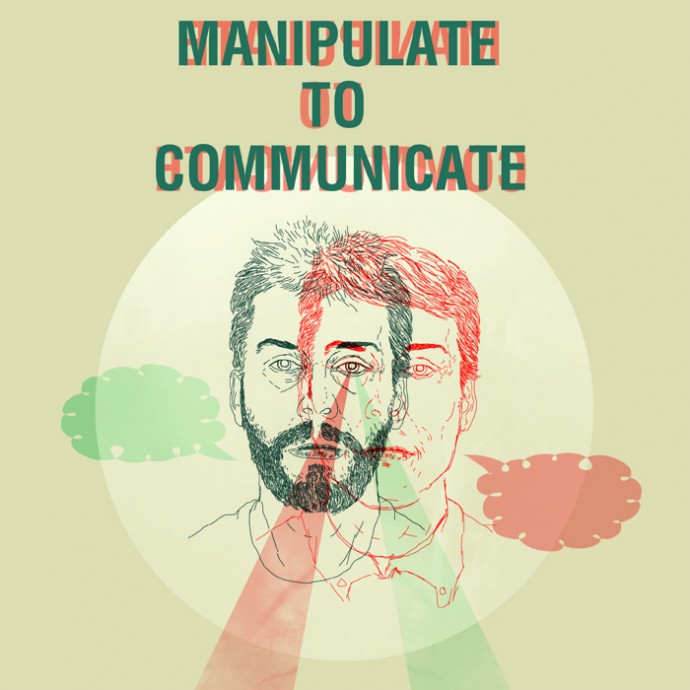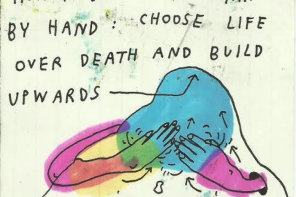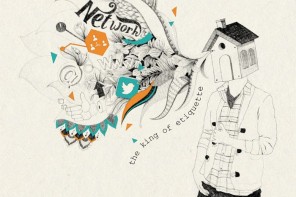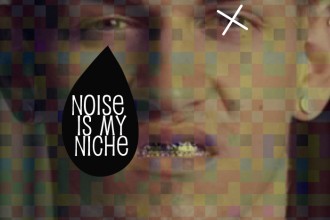The way we see the world fluctuates consistently. We think and communicate through a variety of perspectives. More often than not, we view our lives based on who we were or who we want to be. We’ve also evolved to be able to see ourselves through the eyes of others. This gives us the ability to share informations, tell stories, make friends, and learn new things. Neuro Linguistic Programming (NLP) master, expert Persuasion Artist and Hypnotist Rintu Basu believes this is manipulation, as is all communication. If you don’t like that idea, it may be time to get over it and start learning how to make the most of a natural phenomenon to create win/win situations. Rintu currently teaches job seekers how to use Hypnosis and NLP to have a psychological upper hand in the CV writing and interviewing process by taking control of conversations and directing people’s thoughts. For fun, you can keep your eyes open for how his language directs your thinking, especially when he`s telling a story.
I teach people to get jobs. Some people think I’m manipulating a set of circumstances so that people who are entirely inappropriate for a job, can still get a job, even if they’re no good for it. The thing is, people could use all the skills I teach to do that. You could get jobs that aren’t appropriate for you, but if you had the power to get any job that you want, why would you want to get a job that you’re not appropriate for. Authenticity is a big thing. For me, NLP is about creating an idea of who you are, and who you want to be, and then acting on that. I think this creates a perfect life, but I don’t think it’s perfection in the sense that everything goes right – I think it’s perfection in the sense that you’re always moving towards the best of you, and it means you’ll probably do more for yourself and more for others in that context. Eventually it’s going to wind down to being authentic. It’s also about being able to look out into the future and recognise how you’re going to be different and see the results it’s going to create, then look back towards the present to see this as the start to some fantastic things happening.
All the best stuff around NLP and Personal Development are naturally occurring processes. They happen all the time. If I said to you “John saw the mountain behind the house” you have to form an internal representation of John, a mountain, and a house just to make sense of my statement. Even if I say “John didn’t see the mountain behind the house because neither John, the house, nor the mountain really exists”, you still have an internal representation of John, the mountain and the house. Welcome to my world because you’re never going to have a normal conversation again. The reason you have that internal representation of John, the mountain, and the house is because I said it. You had no control over that. I’ve literally forced those internal representations on you. This is naturally occurring! We do this to ourselves and we do this to everyone we talk to all the time.
One way to do this is to have a look at perceptual positions. Very quickly, it works like this: given any kind of event there are three ways of looking at it; there’s looking at it through your own eyes – seeing the event through your own perspective. There’s also a second position where you look through the eyes of the other person you’re interacting with. So you’ve got your perspective, and then you’ve got the other person’s perspective. There’s also a third position, the perspective of a neutral third person – someone who’s completely outside the situation altogether.
I’m also going to suggest that you could look at this as who you are, and who you want to be. That’s a first and second positional perspective. So I could look out through my own eyes and see the person you want to be, and see what they’re good at and how they’re good at it – the difference between you and them. Now from there, because this is only happening in your mind you can actually float into the person you want to be, look back towards the person that you are (or were) from that new position and look at the changes that you made to create the changes that brought you to where you want to be.
Let’s move this into a different context.
At one time I was working for a company, and wasn’t really enjoying my work, and what I really wanted to do was causing big and dramatic changes in people. That’s a first person perspective. So I thought what’s big, what’s dramatic, what’s going to really impact someone’s life, and it suddenly popped into my head: if I was a police officer I would be going around arresting people, and that would be a big and dramatic change in anyone’s life. That’s second person. I wondered if I could convince someone to put on a pair of handcuffs, climb into the back of a van, and write me a testimonial for my officer about how great that experience was. That’s what I got a reputation for in the police.
I think communication is manipulation right from the start. Any conversation – whether you consciously use these skills or you’re just flapping your gums – is manipulative. In any conversation there is always an agenda, even if it`s just “I want to be understood by the other person”. Why else are you communicating with them if you don’t want to be understood? I think the idea that there’s an agenda is something that people should recognise. If I know it’s occurring, I can use it in a way that’s most effective for both me and the person I’m talking to. This is happening all the time, whether you’re conscious of it or not.
For a couple of years, a young car thief would steal cars from my town, drive to London to buy drugs, then steal another car on the way back. Invariably he was rubbish at it, and would always get seen. He was very very tall, and very very ugly, with blond hair. I told him, “we know it’s you, so you have two choices: you can carry on the way you’re going and at six o’clock one morning a police officer is going to knock on your door, and you will be dragged kicking and screaming out into the street and into the back of a van. Your neighbours are going to know about it, your mother’s going to be out there screaming, and it’s going to be a public affair. Alternatively, what you can do is you can phone me up, find out when I’m on next and hand yourself in. You can have a cup of tea while we process you, you know how long it’s going to take, you know what’s going to happen to you, and we can get it done and dusted very quickly.” He wasn’t going to stop stealing the cars, and he wasn’t going to stop doing the drugs, but every time he did it, he would just come and hand himself in.
There’s a third perceptual position which is external to both who you are and who you want to be, which is a great place to look from now that you understand both positions from the inside. From the outside it’s far easier to create the action plan, the steps, and the things you’re going to do to move from who you are to who you want to be. It’s a great exercise, but this is about living the life that you want. So why not pop out to the future and look back on things now, and see how you’ve changed – before you’ve done it. You’ve been doing that since you were seven years old, and probably younger. Everyone does it, so all we’re doing is putting a bit of extra structure to it.
As a guitarist I started learning to play the guitar because I was inspired by a bunch of guitarists. Rory Gallagher was my guitar hero, and I can still play a whole load of Rory Gallagher’s tunes not through my perspective, but actually sitting in his head at some of the concerts that I saw him play, and I could see myself in the audience. What I’ve just given you in terms of that perceptual positions exercise is a structured version of deep trance identification. The only reason I’m the guitarist that I am is because of accidentally stumbling around these kinds of exercises. If the only thing you do is find a role model of excellence and sit inside their heads and understand how they do what they do, you’ll unconsciously be driven towards that. Just play with your imagination in those kinds of ways. If you look up the structures, it will add a more powerful tweak here and there, but the reality is, it will work anyway!
What keeps me sane about taking control of the way I communicate is to create win/win situations. I’ve been in situations where all I’ve been interested in was getting what I wanted, and every time I’ve done that consciously, it came back and it bit me very hard. So I’m not saying this from a saintly angelic perspective. I think it makes good sense to look at win/win situations. Aren’t people going to be more appreciative, aren’t you going to develop better relationships with people if what your agenda is for them to enjoy themselves in your company as much as you’re going to enjoy yourself in theirs? That’s what it’s about, win/win situations. Professionally, I could get you to do something that’s clearly not in your best interest, but the reality is eventually you’re going to notice that, and what I’m going to lose is a business partner, a referral, a friend. 99.9 % of the time you can find a way of providing a benefit to the person you’re talking to, in personal or business relationships.







